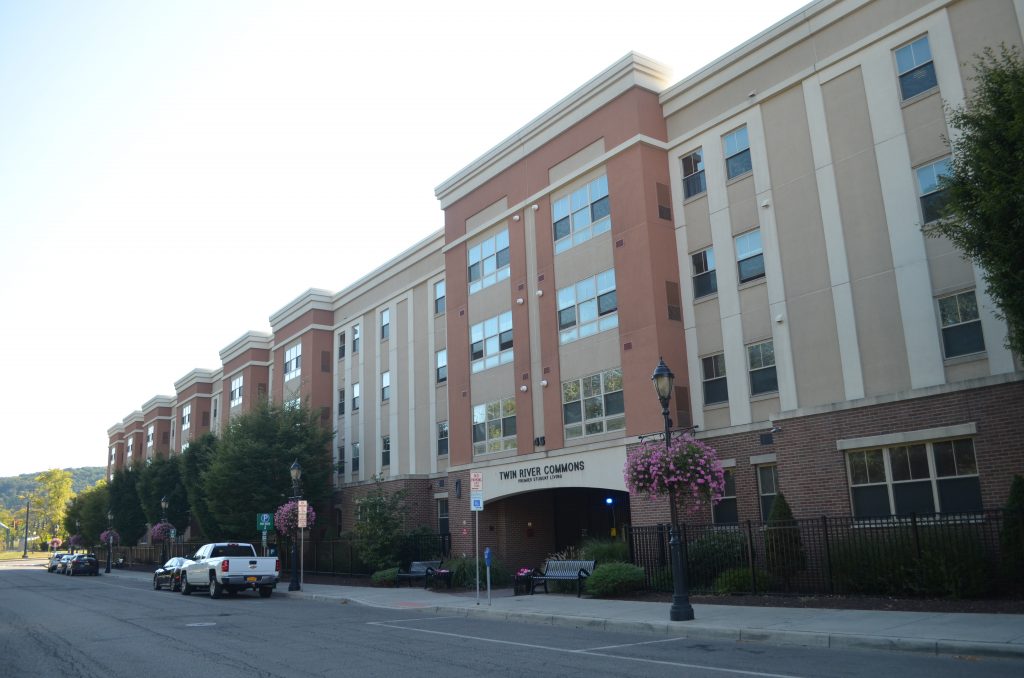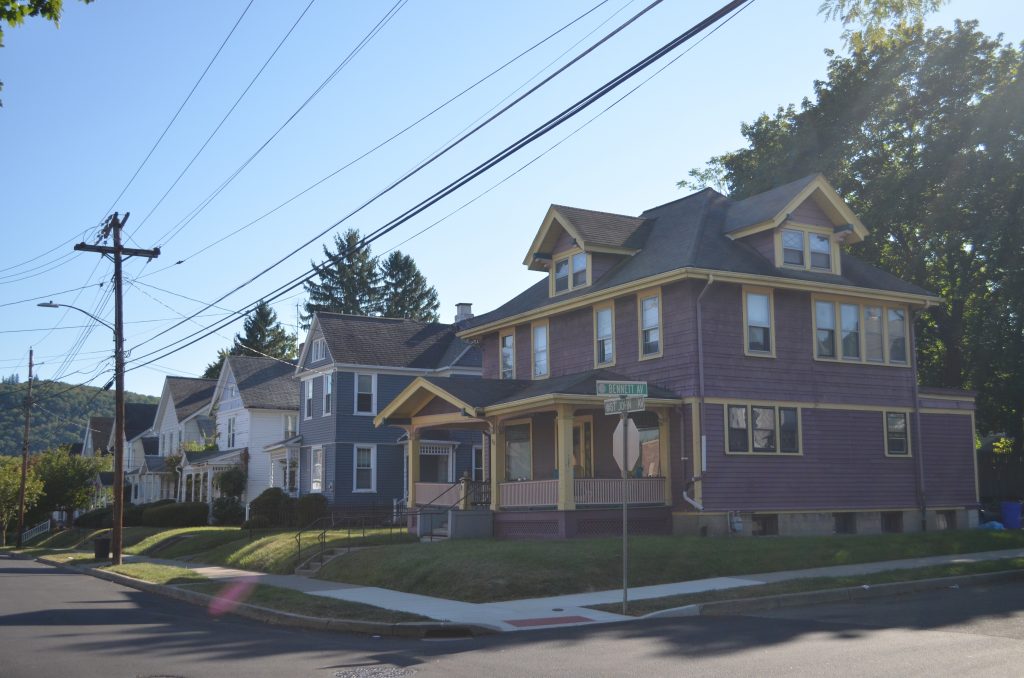
After freshman year, many students make the decision to move off campus for a more independent college experience. After picking roommates and after the air of excitement among everyone grows, the debate between living in luxury apartments affiliated with Binghamton University or renting houses begins.
Student housing complexes such as U Club Binghamton, Twin River Commons and 20 Hawley Street are popular choices for those who want to make the switch to off-campus living. However, another option is the houses in Downtown Binghamton, Johnson City, Binghamton’s West Side and other areas in Binghamton. Both sets of options have their own benefits and disadvantages, but looking through what these pros and cons are can help make the process a little less overwhelming.
Student housing complexes pros:
1. Since only students are living in these apartments, it is much easier to catch a bus ride to campus. Student housing complexes have Off Campus College Transport (OCCT) bus stops in close proximity, making it easier and faster to get to campus.
2. These apartments come fully furnished, making the move-in process a little easier. You won’t have to drop money on a couch you’ll only have the chance to use for a year or two.
3. If anything breaks, the Wi-Fi is out or if there is a bug infestation, all you have to do is fill out a work order form for maintenance to come and fix your issue.
4. These apartments are a safe option for those nervous about living on their own for the first time because there are security guards and gates only residents can get into.
5. It is easier to get into touch with leasing managers or anyone whom you can discuss problems or concerns with because there are employees working in the main office. This makes it less stressful for students when they have a question because it is easy to contact those who have the answers.
Student housing complexes cons:
1. Living in a luxury student apartment comes at a price, and it is most certainly not cheap. These apartments usually run around $700 to $900 per month, which can still total up to less than housing on campus depending on which dorms you are comparing the price to and if you budget your grocery shopping.
2. These apartments have an additional cost of parking. Many student apartments in Downtown Binghamton have a monthly fee of around $70 for parking and U Club Binghamton’s parking fee is $200 for the year.
3. The feeling of living in a student housing complex can sometimes feel as though you are only living in a dorm again. It is easier to receive a noise complaint in these apartments since all one has to do to file one is call the office, which can feel as though you’re being ratted out to the resident assistant (RA.)
Renting nonaffiliated houses pros:
1. If you are renting a house, you will not have to pay a monthly parking fee. Having a driveway not only avoids the parking price, but it also eliminates the annoyance of driving around the parking lot searching for a spot close to the lobby. You will be especially grateful for this when you have heavy bags of groceries with you.
2. The price of rent is substantially lower for renting houses compared to the luxury apartments. You can pay less for your living situation by living off campus and renting a house with other people.
3. You are more immersed in the Binghamton community by living in a house. When you go on walks or go to the store in your neighborhood, you are reminded that Binghamton is a city with real people and families living in it, not just a playground for college students. This can help you appreciate the community more, and even prompt you to get involved to make it a better place for everyone to live in.
4. If you have too many friends for one of the student apartments, which usually max out around four roommates, houses are big enough to fit everyone.
Renting nonaffiliated houses cons:
1. If you do not have a car or do not want to drive to campus all of the time, it is more difficult to catch a bus. You may have to walk a good distance to the nearest bus stop which can add time to your daily commute; however, it is not impossible to use public transportation as there are bus stops throughout Downtown Binghamton and the West Side.
2. You are further from the hub of Downtown Binghamton while also being further from campus — the worst of both worlds. The commute to school is a bit longer, and your walk to the Downtown Binghamton bars and restaurants may be longer.
3. Some houses will not come fully furnished, requiring you to spend money on furniture. This can be a pro, however, if you want to personalize the house your own way.
4. Depending on where you live it may be difficult to get in touch with your landlord, as they do not have employees working for them in the lobby or main office like student housing apartments. This can make it difficult for when you need repairs or have any questions as a tenant.
Final thoughts:
Although both options have their fair share of pros and cons, it really depends on what works best for you and your future roommates. Before making a decision, it is always best to check out both sides and see for yourself what you think will make living off campus enjoyable for you.



